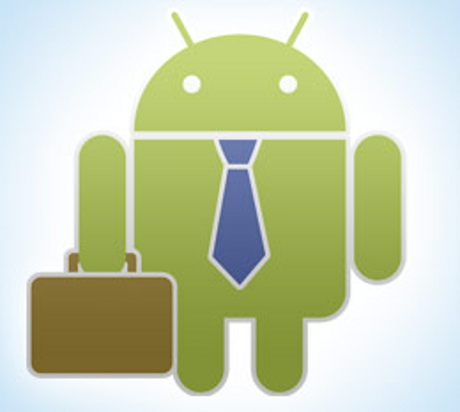Android leads, RIM recedes: Here's the enterprise fallout


Market research from Canalys indicates that Android's gains are at the expense of RIM's, the traditional enterprise mobile bastion.
This morning, the UK-based tech industry research firm Canalys published a report which indicates that at the end of 2010, Google's Android OS became the world's leading smartphone platform in terms of overall market share.
According to Canalys, Android jumped from an 8.7 percent overall share to nearly a 33 percent share over the course of one year, knocking Nokia out of the top spot and reducing RIM's share almost 5 percentage points and resulting in over 615 percent growth for the platform overall in CY 2010.
My colleague and Editor-in-Chief, Larry Dignan, highlighted a number of footnotes from that report which are worth evaluating -- the most significant of which is that Canalys maintains that in 2011, Android is unlikely to repeat that performance because Verizon is getting the iPhone, which may offset some of that momentum.
There are a few problems I have with that analysis, because I believe that Canalys may have grossly underestimated the rate of decline of the RIM BlackBerry platform. As I stated in a previous piece regarding similar market data obtained by comScore, much of Android's gain has been at the expense of the BlackBerry.
In 2010, that expense was the BlackBerry's Consumer market base. In 2011, it's going to be the Enterprise.
Also Read: Verizon iPhone, LTE Androids: Dark Clouds Ahead for RIM's BlackBerry?
Indeed, the iPhone is going to be very popular with consumers as it lands on other carriers. And yes, some of that is going to affect Android sales in the consumer space. However, in the Enterprise, that's an entirely different ballgame and one in which Apple is going to find some difficulty assuming dominance in that space.
There is no doubt that in large, medium and small IT environments, executives and employees are asking for iPhones and iPads to be supported in their organizations, particularly as it relates to secure messaging, If Deutche Bank's experience with Good Technology's BES replacementfor iPhone (and Android) is of any example.
However, as corporations move to more and more of a "Bring your own" device model, where the employee purchases their own personal phone and hooks it into the corporate intranet and enterprise applications, the iPhone becomes more of a niche player, Android becomes the predominant platform, and the BlackBerry recedes.
Why? A couple of reasons.
First, there is the difference in how applications can be deployed and developed on Android versus the iPhone. The iPhone can run native applications which are distributed on the App Store, or it can run web-based applications. iOS apps can also be distributed via "Ad Hoc" mechanismdocumented in Apple's iOS Enterprise Deployment Guide, but it's not practical for large-scale enterprise use.
There is certainly a lot of momentum behind web apps for mobile devices in the enterprise, but that does not preclude actual mobile "Apps" being developed. In terms of overall skill sets in the enterprise, corporate developers are skilled at web technologies, Java and C/C++, which is the lingua franca of Android and the Android NDK. Objective-C and writing apps in XCode, not so much.
If one chooses to develop a proprietary, corporate mobile application that isn't web-dependent and uses skill sets that enterprises already have in-house, then the most logical platform to do it on would be Android.
Secondly, although this is not currently in common use today, is the future need to actually partition personal data from corporate data. Today, companies issue corporate BlackBerries to employees, which use their own personal phones separately and carry two devices. In few instances, companies may allow employees to bring their own into the enterprise, but if they do so, they have to submit to BES policy, such as password locks and data encryption.
As we move into the "Bring your own" model employees and enterprises will actually want to logically separate personal data from corporate data, something that BlackBerry and iOS cannot easily do now. Currently, no shipping Android device can do this either, but this is about to change.
With mobile virtualization platforms, such as with VMWare's MVP for Android, an employee can buy a personal smartphone and install an enterprise "Virtual Phone" which contains corporate applications and data. This "Virtual Phone" can be stored on the device in an encrypted, isolated fashion and can be remotely deleted/wiped if necessary by corporate IT. How does this work? Check out VMWare's video, which shows interestingly enough, an Android 2.1 device running an Android 1.6 virtual phone.
The first phones to use VMWare's Mobile Virtualization Platform have not yet shipped, but the technology is going to be showcased at Mobile World Congress 2011 and VMWare has already announced an initial OEM partnership with LG Electronics, which will build devices that are MVP-compatible. This obviously does not preclude future partnerships at the carrier-level or with other OEMs, which are likely forthcoming.
2010 was the year Android took over the consumer smarphone market. Will 2011 be the year it attacks the Enterprise? Talk Back and Let Me Know.